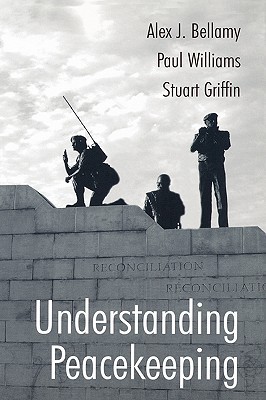
- We will send in 10–14 business days.
- Author: Alex J Bellamy
- Publisher: Polity Press
- ISBN-10: 074563057X
- ISBN-13: 9780745630571
- Format: 16.4 x 23.9 x 3 cm, kieti viršeliai
- Language: English
- SAVE -10% with code: EXTRA
Reviews
Description
Understanding Peacekeeping provides a comprehensive and up to date introduction to the theory, practice and politics of contemporary peacekeeping. It evaluates the changing characteristics of the contemporary environment in which peacekeepers operate, what role peacekeeping plays in wider processes of global politics, the growing impact of non-state actors, and the major challenges facing peacekeepers in the future.
Drawing on a wide range of historical and contemporary case studies, including: Afghanistan; Cambodia, Cyprus; the Democratic Republic of Congo; East Timor; El Salvador; Haiti, Liberia; Rwanda; Sierra Leone; Somalia; and the former Yugoslavia, this book develops an original conceptual framework to chart the evolution of the role of peacekeeping in global politics, and highlights the unique characteristics of different types of peacekeeping operations. Part 1 examines concepts and issues related to peacekeeping in global politics. Part 2 charts the historical development of peacekeeping from 1945 to the present. In Part 3, separate chapters are devoted to different types of peacekeeping operations: traditional peacekeeping; managing transition; wider peacekeeping; peace enforcement; and peace support operations. Part 4 looks forward and examines developments in global politics that are presenting serious challenges to the concept and practice of peacekeeping, namely, globalization, the privatization of security, preventing violent conflict, and the establishment of protectorates.
Understanding Peacekeeping will be essential reading for students and scholars of peace and conflict studies, security studies, and international relations.
EXTRA 10 % discount with code: EXTRA
The promotion ends in 21d.20:26:34
The discount code is valid when purchasing from 10 €. Discounts do not stack.
- Author: Alex J Bellamy
- Publisher: Polity Press
- ISBN-10: 074563057X
- ISBN-13: 9780745630571
- Format: 16.4 x 23.9 x 3 cm, kieti viršeliai
- Language: English English
Understanding Peacekeeping provides a comprehensive and up to date introduction to the theory, practice and politics of contemporary peacekeeping. It evaluates the changing characteristics of the contemporary environment in which peacekeepers operate, what role peacekeeping plays in wider processes of global politics, the growing impact of non-state actors, and the major challenges facing peacekeepers in the future.
Drawing on a wide range of historical and contemporary case studies, including: Afghanistan; Cambodia, Cyprus; the Democratic Republic of Congo; East Timor; El Salvador; Haiti, Liberia; Rwanda; Sierra Leone; Somalia; and the former Yugoslavia, this book develops an original conceptual framework to chart the evolution of the role of peacekeeping in global politics, and highlights the unique characteristics of different types of peacekeeping operations. Part 1 examines concepts and issues related to peacekeeping in global politics. Part 2 charts the historical development of peacekeeping from 1945 to the present. In Part 3, separate chapters are devoted to different types of peacekeeping operations: traditional peacekeeping; managing transition; wider peacekeeping; peace enforcement; and peace support operations. Part 4 looks forward and examines developments in global politics that are presenting serious challenges to the concept and practice of peacekeeping, namely, globalization, the privatization of security, preventing violent conflict, and the establishment of protectorates.
Understanding Peacekeeping will be essential reading for students and scholars of peace and conflict studies, security studies, and international relations.


Reviews